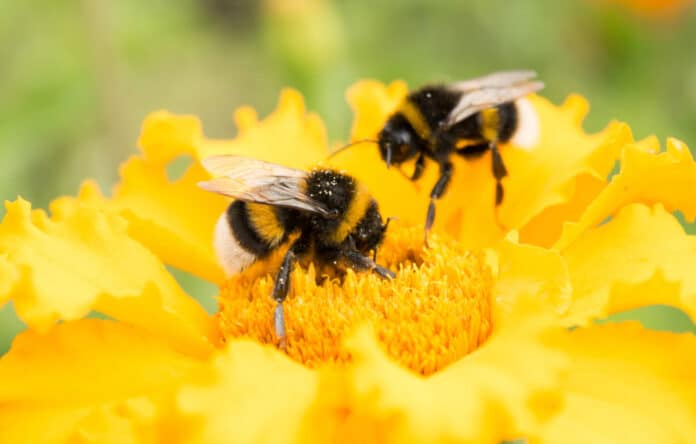A pesticide known to kill bees has been authorised for farmers to use on sugar beet crops in England.
We are shocked that the Secretary of State, George Eustice, has used his power to allow this.
The decision to allow emergency use of thiamethoxam goes against all commitments this Government has made to help nature – including an explicit pledge to keep pesticide restrictions after Brexit. It invalidates pledges around nature’s recovery made less than six months ago. And it crushes the Government’s stated vision for tackling the biodiversity crisis. The deadly neonicotinoid (‘neonic’) is thiamethoxam, which was banned EU-wide in 2018 because of the wide-spread harm it causes.
Even worse, the authorisation involveskilling wildflowers that grow alongside the sugar beet by adding weedkiller – on the basis that this will ‘protect’ bees from beneficial ‘weeds’ that will have absorbed neonicotinoids through the contaminated soil. This would devastate precious wildflower habitats and the already endangered insects that depend on them.
The Wildlife Trusts strongly oppose this decision. We urge the Prime Minister to reverse it, and stop this backwards slide for nature.
The sugar industry has been secretly lobbying the Government with the National Farmers Union, to get them to authorise the use of the highly damaging neonicotinoid thiamethoxam for the treatment of sugar beet seed in 2021. The Government has bowed to the pressure and agreed.
This is an emergency authorisation designed to help tackle the potentially damaging impact of aphids on sugar beet crop. Unfortunately with climate change set to increase the frequency of warmer and wetter winters in the UK, boosting the number of aphids which spread the sugar beet virus, there is a significant risk that this emergency authorisation becomes a common occurrence – we could see the return of routine application of neonicotinoid pesticides in the UK.
Farmers should not have to choose between farming and nature. We want farmers to be supported to adopt non-chemical alternatives that are proven to support nature long-term. Read our full statement
Our Action for Insects campaign is a response to the catastrophic decline of insect populations. Our 2019 report, Insect Declines and Why They Matter, included evidence of the loss of 50% or more of our insects since 1970, and the shocking reality that 41% of the Earth’s remaining five million insect species are now ‘threatened with extinction’. It’s essential that there is a halt to the unnecessary use of pesticides where people live, work and farm, with support for all sectors to make the transition towards becoming pesticide-free.
Lobby your MP and support the fight to protect bees
PLEASE SUPPORT US FOR JUST £2 A MONTH







